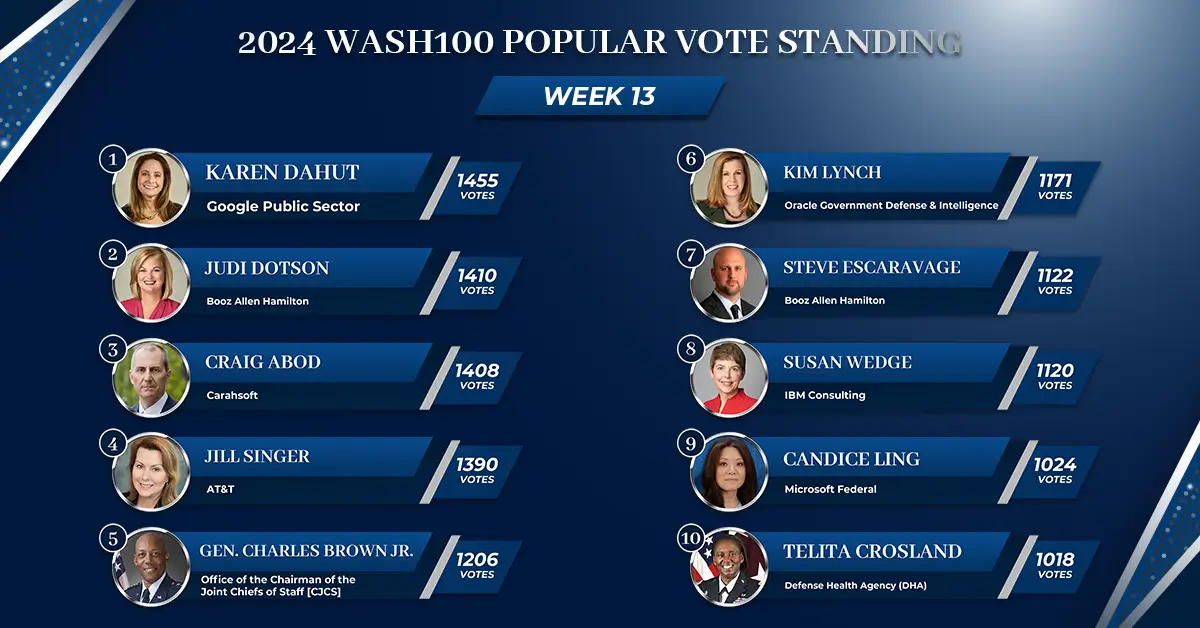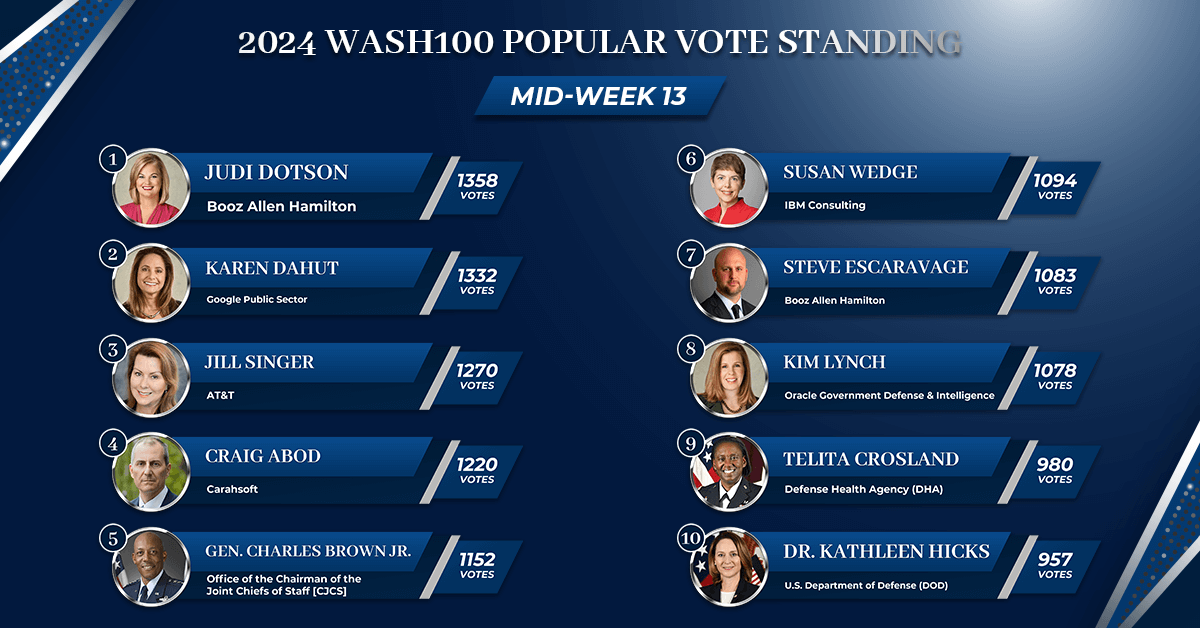With the increase of space exploration and defense, space research and technology continues to expand. Spanning across weapons, military and aerospace, space agencies such as NASA and the U.S. Space Force, have worked to develop innovative solutions to support critical space and defense missions.
Gen. John Raymond, chief of space operations at the U.S. Space Force and 2021 Wash100 Award recipient, will deliver a keynote speech at Potomac Officers Club’s 2021 Industrial Space Defense Summit. He will address space technology, innovation and private-public partnerships that will expand federal space defense capabilities and help defeat adversaries.
To register for the Summit, as well as view upcoming opportunities, visit Potomac Officers Club’s Event Page.
Since the U.S. Space Force was established in Dec. 2019, the unit has worked to organize, train and equip the nation’s warfighters to protect U.S. and allied interests in space and provide space capabilities to the joint force.
In his role, Raymond serves as the senior uniformed Space Force officer responsible for the organization, training and equipping of all organic and assigned space forces serving in the nation and overseas.
In Sept. 2020, Raymond said that the U.S. Space Force is establishing a digital service that will leverage the advanced technology platforms to provide economic stability and security to the U.S. and its allies. He said the service branch is also working on a strategic roadmap called Space Force Planning Guidance.
The Space Force Planning Guidance “will involve things like streamlining the over 60 offices responsible for elements of space policy, oversight and force structure to creating a new ‘Technology and Innovation Office’ to sustain our competitive advantage,” Raymond wrote.
Raymond also discussed how the Space Force has leveraged digital technologies to support its mission and remain agile and resilient in the modern space race. Raymond noted that the Space Force’s design will ensure that electronic and computing-based capabilities underpin its structure.
One of the Space Force’s major initiatives throughout the year was establishing and integrating a digital workforce, digital headquarters and digital engineering. “In order to outpace our adversaries in space, the U.S. Space Force intends on being a digital service from the ground up,” Raymond stated.
To meet the requirements of a digital future, the Air Force launched the Digital University program to help increase digital literacy by providing access to free courses to the Department of the Air Force and Space Force. Digital University will support the needs of Airmen by providing 100,000 licenses to access more than 12,000 courses.
“In addition, to increase the digital fluency of the entire force, we have issued 6,000 licenses to Digital University,” Raymond said. “Our expectation is that all Space Force members will speak a second language. And that language is digital.”
In 2021, the Space Force was added to the U.S. intelligence community and now serves as the ninth Department of Defense (DoD) component in the interagency group. The military service’s designation as the 18th IC member.
Director of National Intelligence, John Ratcliffe, said the branch’s addition to the IC underscores the domain’s importance in intelligence and military operations while ensuring interoperability, future technology development and global strategic awareness.
“This is a significant milestone, a clear statement that America is committed to a secure and accessible space domain,” Raymond said.
Ezra Cohen, acting undersecretary for intelligence and security at the Department of Defense, said the designation will align Space Force with other Defense Intelligence Enterprise components and will help ensure synchronization and coordination across all warfare domains.
To register for the Summit, as well as view upcoming opportunities, visit Potomac Officers Club’s Event Page.






